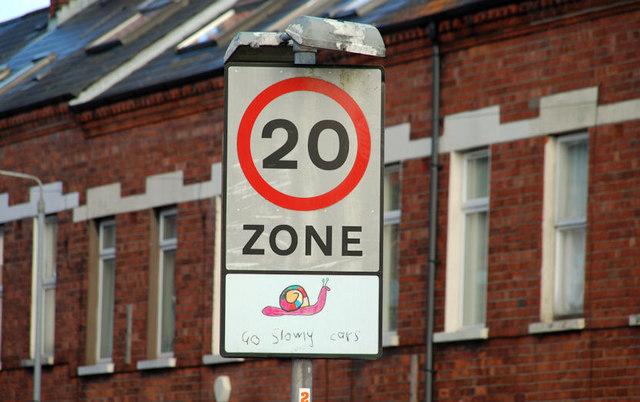The number of cyclists injured or killed from road traffic incidents in Wales has fallen by more than a quarter since the roll-out of ‘default’ 20mph speed limits on most roads, new data shows.
Data to the end of March shows that there have been 348 cyclists killed or injured on all roads since the 20mph law came into force in September 2023, down 28 percent compared with the 481 reported casualties from April 2022 to September 2023.
The number of cyclists seriously injured has also decreased by 30 percent in the same time. North Wales, which saw 94 percent of its 30mph roads switch to 20mph, also recorded the biggest decrease in total casualties.
In a statement, campaign group 20’s Plenty for Us said: “As well as making Welsh communities safer, 20mph is benefitting drivers in lower insurance costs.
“We congratulate politicians, local authority representatives and community leaders who called for and implemented 20mph.
“We thank Welsh drivers who have altered their behaviour to make their communities even better places to be.”
But the policy remains controversial. The BBC interviewed a driving instructor in Wrexham who said the “the limit has been a total disaster”.
“I’ve never seen the roads so dangerous in my 39-year career,” says Stuart Walker.
“No one was doing under 30mph in the 20mph zones, which meant training people to drive became really dangerous.”
Department for Transport research from earlier in the summer showed three quarters of drivers in England regularly exceeded the 20mph speed limit, where its implementation is more selective than in Wales. Data also showed the number of drivers taking a speed awareness course across the UK to be at record levels.
In 2023, the Parliamentary Advisory Council for Transport Safety published research suggesting that traffic-calming infrastructure was needed alongside reduced speed limits to encourage greater compliance and safer roads. In Wales, speeding fines are issued by the police to drivers exceeding 26mph on a 20mph limited road.
The new 20mph ‘default’ limits came into force two years ago today and applied to approximately 35 percent of Welsh roads, most of which previously maintained a 30mph limit.
The policy was introduced with the support of the United Nations but also amid controversy and allegations that the policy would cause unnecessary congestion and delay road users. A petition to the Senedd (Welsh Parliament) calling for the law to be scrapped attracted a record 470,000 signatures.
The Welsh Government said the measures would reduce the number of deaths and serious injury caused by cars, as well as tackling pollution and encouraging people to walk or cycle instead of drive.
In response to criticism over the law’s implementation, in April 2024 it was announced that local councils would be able to restore the 30mph limit on certain roads on a case-by-case basis according to local demand.
The new limits have also caused unintended difficulties for Welsh cycling. The organisers of the prestigious Junior Tour of Wales race cited the 20mph speed limits as one of many factors in the race’s shortening in 2024. The race was subsequently cancelled and replaced earlier this year by Beicio Cymru (Welsh Cycling).

